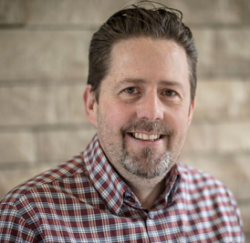You are here
- Home
- Blog
- Supporting care experienced students: Piloting a project in the Faculty of Business and Law
Supporting care experienced students: Piloting a project in the Faculty of Business and Law

By Grace Allen, Catherine Comfort, Daniel Coxon, Sarah Henderson, Christine Mera & Joanna Mirek-Tooth
Higher Education (HE) is a vast and different world to navigate for any new student wishing to access it.
For a student who is a care leaver, this journey can be even more daunting, especially if undertaken without the consistency and reassurance of support networks that many other students benefit from.
Indeed, this can affect students who have experience of the care system at any point in their past and not just those considered ‘care leavers’.
Can you ever be on the same playing field? Can anywhere replicate that network? Probably not, but we have to try to build something different that works instead.”
OU Student, 2021
Across the UK, the number of children in care continues to rise with a larger increase during the pandemic (Barnardo’s, 2020). As these children move from care and become a ‘care leaver’, 13% are known to access HE (compared to 43% of non-care leavers), with half of these students then withdrawing from their studies. Care leavers are one of the most underrepresented groups within HE (Office for Students, 2021).
There is growing recognition across the HE sector that while they cannot influence factors in these young people’s early lives, HE Institutions (HEI) should provide additional support to students who have experience of care (Murphy, 2020). At The Open University, unlike most HEIs, the student body is drawn from students of all ages, with a high proportion being above 25 years old. Therefore, the term ‘care experienced’ is used rather than ‘care leaver’ to be inclusive of all students who have had experiences in the care system whilst growing up, no matter when this was.
The Open University’s mission is to be open to people, places, methods and ideas. We promote educational opportunity and social justice by providing high-quality university education to all who wish to realise their ambitions and fulfil their potential (The Open University, 2021). In line with our mission, and targets to support care experienced students in the Access and Participation Plan, we are piloting a project within the Faculty of Business and Law (The Open University, 2020). The project team, comprising of Lecturers and Student Experience Managers from across both the Business and Law Schools and the Apprenticeship team, have been working together to consider the appropriate additional support for care experienced students and pilot a service to provide that support.
The data shows that within the Faculty of Business and Law, since 2015/2016, 525 students have declared themselves as being care experienced, with 130 of these students currently studying. However, a challenge facing the university, like others across the HE sector, is knowing who all our care experienced students are. One known barrier in the sector to providing such support is low declaration rates. This can be for a variety of reasons, such as wishing to move on from these experiences once they become adults and can live and study independent of the care system, others are concerned with being labelled or judged and the stigma this may cause, or simply that students who left care some time ago do not realise this support applies to them (Baker, 2017).
I have very little faith in the system and people in positions of authority.”
OU Student, 2021
This project takes this context into consideration and provides a support mechanism that is open and accessible to all students within the Faculty, allowing those who relate to seek extra support regardless of whether they have made a declaration (Cotton, Nash and Kneale, 2014). This strategy was supported by students with care experience who reviewed the project proposal.
We have been supported by the Care Leavers Association (CLA), who have run a set of workshops focusing on developing a stronger understanding of the needs of students who have experienced care. The CLA shared with us their insights and research, highlighting that a sense of belonging within the academic community is particularly important due to instability and potentially disruptive past experiences.
This research then informed the design of the pilot project. It places our Associate Lecturers, who spend the most time with our students, at the forefront of the project. Therefore, three Associate Lecturers, who successfully demonstrated their past experiences (either professional or personal) with young people, disadvantaged groups or care experienced individuals, joined the project team to take on the key role of delivering support.
The project aims are:
- To provide a champion or role model to support and inspire students who have experiences within care.
- To inform the development of practical support mechanisms and materials within the faculty which meet the requirements of care experienced students and empower them to succeed.
- To provide opportunities for care experienced students to voice their experiences of HE study and the challenges they face with the aim of furthering our understanding of student needs.
- To equip care experienced students with knowledge of internal and external resources they can draw on during their studies.
The project launched in April 2021.
In relation to aim 1, tutors are now on hand to support students in a one-to-one environment who request this mentoring service. We have referred to these roles as care champions and provided an online profile on each tutor with a profile picture to make them feel accessible to students.
These profiles sit on webpages developed to meets aims 2 and 4. It was important to the team to build awareness rather than just measure uptake of the service. Therefore, these pages also contain useful information, links to OU Student Support specialists and signposts to further OU and external resources for care experienced students.
From our interactions with students and the CLA we are aware that many care leavers may wish to access information anonymously rather than proactively seeking one to one support. It was therefore important to demonstrate through the webpages a visible commitment to this group of students, even if they did not wish to initiate contact. Since their launch, these webpages have been visited 100 times by 93 different students.
A full communications plan to raise awareness to all OU stakeholders followed the project which included both internal communications with the help of the Associate Lectures through tutor group online forums, as well as external communications. The project team worked with the FBL social media team, and launched a full FBL social media campaign, which raised awareness of the initiative through the online platforms of Facebook, Twitter and LinkedIn.
The uptake of tutor calls has been slow, which is to be expected in a group of students who are often reluctant to identify themselves. We are, therefore, planning to continue to offer this support, at the same time as building on student feedback and working to develop a sense of community. Students have made it clear that consistency in services offered is important in gaining trust, rather than evaluating and making changes too swiftly and before students have had a chance to become aware of, and gain trust in, the provision. Therefore, this project has been extended to support this provision and raise further awareness moving into the new academic year.
We need to build our own networks and having support groups and clubs in place to support us; and following initiatives like this one can ensure that we aren’t going through this alone. We can build back stronger and better, because with initiatives like this one here in FBL we have found our own network, and it works.”
OU Student, 2021
Several students suggested that a network or peer support group would help care experienced students to feel more embedded within the wider university community. We have therefore worked with Learner and Discovery Services to create an online forum for students to connect and a dedicated online space for virtual networking sessions.
In addition, the team will be developing a staff resources page and guide to spread awareness further within the Faculty of Business and Law and make sure due consideration is given to care experienced students within the curriculum development, delivery and support.
We look forward to updating you next year on our progress.
SEM project Team: Grace Allen, Daniel Coxon, Christine Mera, Joanna Mirek-Tooth, Catherine Comfort, Sarah Henderson
Our AL champions: Kristina Burton, Mary Shek, Rose Stringer
Our SST champions: Lorraine Gregory, Kathryn McAnulty
With special thanks to the Care Leavers Association (CLA)
References
Baker, C. (2017) Care leavers’ views on their transition to adulthood: A Rapid Review of the Evidence. Available at: https://coramvoice.org.uk/wp-content/uploads/2021/01/Care-Leaver-Rapid-Review-24.10.17-final-proof-2.pdf (Accessed: 09.11.2021).
Barnardo’s (2020) Barnardo’s declares ‘state of emergency’ as number of children needing foster care during Coronavirus pandemic rises by 44%. Available at: https://www.barnardos.org.uk/news/barnardos-declares-state-emergency-number-children-needing-foster-care-during-coronavirus (Accessed: 09.11.2021).
Cotton, D., Nash, P. and Kneale, P. (2014) ‘The Experience of Care Leavers in UK Higher Education’, Widening Participation and Lifelong Learning, 16(3), pp. 5-21. Available at: https://core.ac.uk/download/pdf/74389498.pdf (Accessed: 09.11.2021).
Murphy, S. (2020) Learning on the margins: Care leavers in higher education. Available at: https://www.youthandpolicy.org/articles/learning-on-the-margins/ (Accessed: 09.11.2021).
Office for Students (2021) Care experienced students and looked after children. Available at: https://www.officeforstudents.org.uk/advice-and-guidance/promoting-equal-opportunities/effective-practice/care-experienced/ (Accessed: 24.6.2021).
The Open University (2020) Access and Participation Plan 2020-2025. Available at: https://www.open.ac.uk/about/wideningparticipation/ (Accessed: 24.6.2021).
The Open University (2021) Mission. Available at: https://www.open.ac.uk/about/main/strategy-and-policies/mission (Accessed: 24.6.2021).
This blog represents the views of the individual, not SCiLAB or the Open University.

Catherine Comfort
Catherine Comfort is the Academic Lead for Access, Participation and Success in the Faculty of Business and Law.

Daniel Coxon
Daniel Coxon is a Lecturer and Student Experience Manager (Apprenticeships) in the Faculty of Business Law.

Sarah Henderson
Sarah Henderson is the Head of Student Experience for Law programmes. Sarah is also an Associate Lecturer in Law.

Christine Mera
Christine Mera is a Lecturer and Student Experience Manager (Business) in the Faculty of Business and Law.
Christine is also a Visiting Lecturer on business programmes.

Grace Allen
Grace Allen is a Lecturer and Assistant Head of Student Experience (Law) in the Faculty of Business and Law.
Grace is also an Associate Lecturer on the business programme and Practice Tutor.

Joanna Mirek-Tooth
Joanna Mirek-Tooth is a Student Experience Manager (Business) in the Faculty of Business and Law.
Joanna is also an Associate Lecturer in the Faculty of Wellbeing, Education and Language Studies.

Blog posts
- What happens when apprentices are made redundant 16th January 2024
- What is most important when integrating ‘green skills’ and sustainability topics into learning and teaching strategies? 11th December 2023
- Understanding what practice tutors in the Faculty of Business and Law need and want in their induction 6th December 2023
